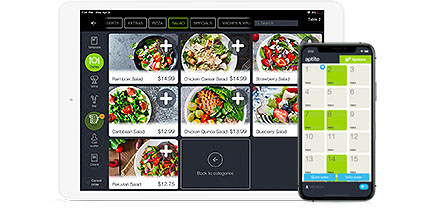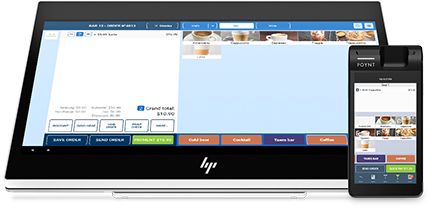Studies, Trends Show Tablets to Become Primary Computer for Many by 20163 min read
 Forrester Research, a company that provides research, analytics and studies that relate to technological trends, has revealed a rather interesting report regarding the current usage of tablet computers, and how they will quickly – and sooner than you think – overtake that of the usage of desktop computers. Seemingly, the smartphone/tablet era is in full force. Thinner, more capable and super sleek and fast tablets and smartphones are the wave of the future. Something that was once envisioned in cheesy 80s sci-fi movies is now a surefire reality. And society is wholeheartedly embracing such technological innovations, too.
Forrester Research, a company that provides research, analytics and studies that relate to technological trends, has revealed a rather interesting report regarding the current usage of tablet computers, and how they will quickly – and sooner than you think – overtake that of the usage of desktop computers. Seemingly, the smartphone/tablet era is in full force. Thinner, more capable and super sleek and fast tablets and smartphones are the wave of the future. Something that was once envisioned in cheesy 80s sci-fi movies is now a surefire reality. And society is wholeheartedly embracing such technological innovations, too.
According to a recent report by Forrester Research, tablet computers will become the “preferred, primary device for millions of people around the world” by the year 2016.
There will, however, still be plenty of PCs in use at homes and in businesses, according to Forrester.
Frank Gillett an analyst at Forester who predicts technological trends stated in his blog: “There will still be lots of personal computers sold and in use — in fact our casual estimate is that there will be 2 billion PCs in use by 2016, despite growing tablet sales.”
According to Gillett, key reasons for the surge in tablet users include: unique, “compelling user experience,” which will foment strong international growth, a trend that will “continue to grow sharply over the next five years.”
“We forecast sales rising from 56 million in 2011 to 375 million in 2016,” Gillett said in his report. “Given that a majority of tablets will be retired within three years of purchase, we forecast that there will be 760 million tablets in use globally by 2016. One-third of these tablets will be purchased by businesses, and emerging markets will drive about 40 percent of sales.”
Desktops vs. Tablets?
Gillett was certain to emphasize the underscoring that we all know about tablets: they are not as powerful as desktop computers by any means. “[Tablets] aren’t the most powerful computing gadgets … they are the most convenient,” Gillett emphasized in his report. “They have longer battery life and always-on capabilities better than any PC — and will continue to be better at that than any ultrathin/book/Air laptop. That makes them very handy for carrying around and using frequently, casually, and intermittently even where there isn’t a flat surface or a chair on which to use a laptop.”
In the workplace, for example, tablets make it easier for workers to share space because they take up far less space and make user and group sharing more convenient. They are also portable, which enables people to easily move them from one workspace to the next or bring them along with to company meetings and events.
PCs Will Still Be Computing Staples
“Our casual estimate is that there will be 2 billion PCs in use by 2016, despite growing tablet sales,” said Gillett. “That’s because tablets only partially cannibalize PCs. Eventually tablets will slow laptop sales but increase sales of desktop PCs. That’s because many people, especially information workers, will still need conventional PCs for any intensely creative work at a desk that requires a large display or significant processing power.”
Gillett also believes that the tablet/laptop combos will soon take over as the industry standard over the years to come. Such devices he calls hybrid devices. “I agree that laptops are still preferred today, if you had to pick one device,” he noted.
It’s all about user preference, however. “Tablets will get good enough at many, but not all creation tasks — plus they’ll become so important and convenient for everyday use and consumption, that they become an individual’s primary device,” he concluded.
Would you enjoy being handed a tablet as a digital menu the next time you visit a restaurant that you fancy? What about at your hotel, where you could be handed a tablet in the form of an iPad menu the next time that you check in? Open helps make this possible with our array of industry leading digital menu software solutions. Learn more about digital menu software by Open.



